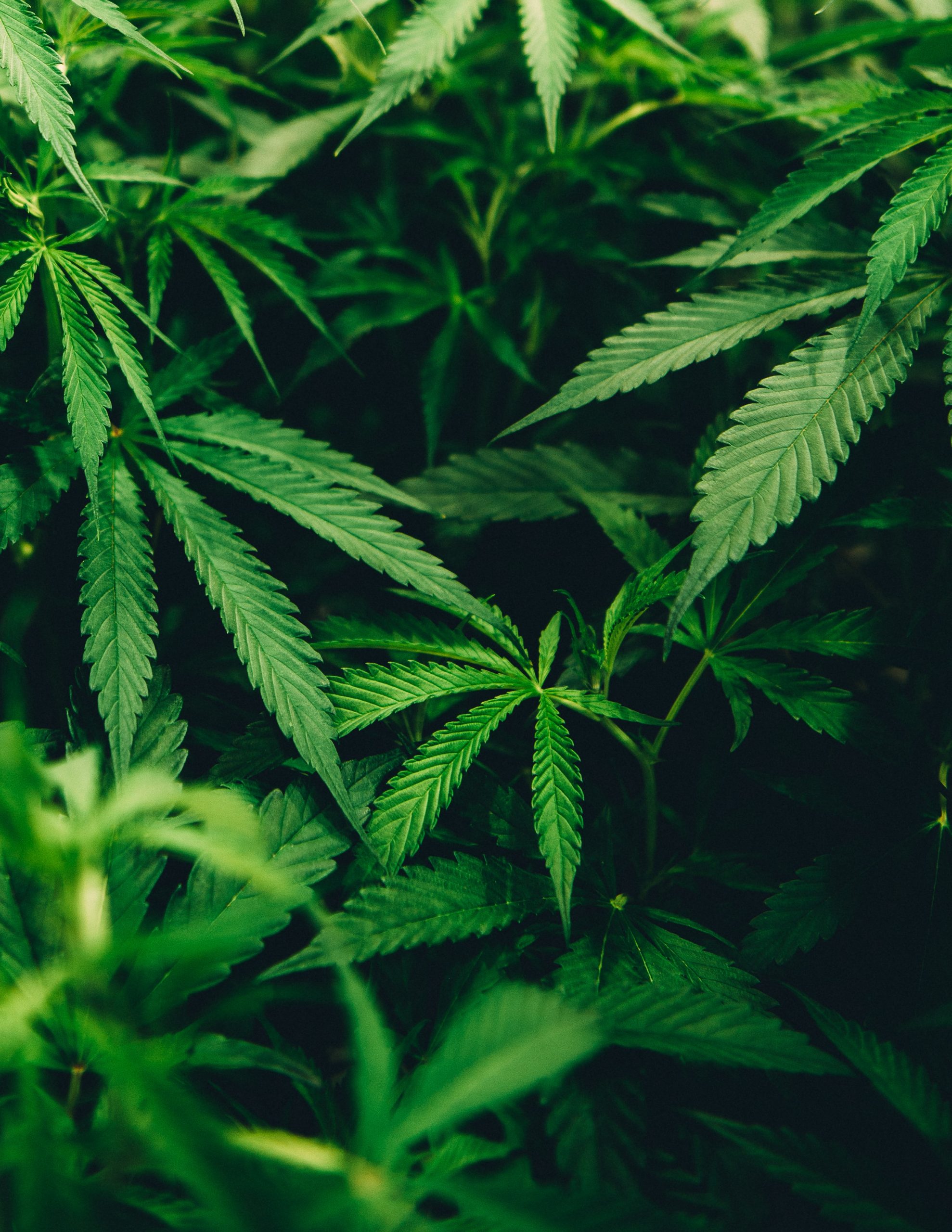
Industrial Hemp in Australia
Industrial hemp is a versatile and sustainable crop with a wide range of potential applications.
It can be used to produce a variety of products, including textiles, building materials, food and beverages, animal feed, personal care products, and industrial products.
The Australian industrial hemp industry is still in its early stages of development, but it is growing rapidly. This growth is being driven by a number of factors, including increasing demand for sustainable products, government support, and technological advances.
In this comprehensive guide, we will discuss the history of industrial hemp in Australia, the regulations governing its production, and the various products that can be made from this versatile crop. We will also explore the challenges and opportunities facing the Australian industrial hemp industry, and provide answers to some frequently asked questions.
Whether you are a farmer, entrepreneur, or simply curious about industrial hemp, we hope this guide will provide you with the information you need to understand and appreciate this valuable crop.
Regulations
The production of industrial hemp in Australia is regulated by the states and territories. To obtain a license to grow industrial hemp, you must contact the relevant government department in your state or territory. The licensing process will vary depending on your location, but will typically involve submitting an application and paying a fee.
In addition to licensing requirements, there are a number of other regulations governing the production of industrial hemp in Australia. These regulations include:
THC content limits: The THC content of industrial hemp in Australia must remain below 0.3%.
Growing and harvesting requirements: Industrial hemp must be grown and harvested in accordance with strict regulations. These regulations are designed to ensure that the THC content of industrial hemp remains below the legal limit.
Processing and manufacturing requirements: Industrial hemp must be processed and manufactured in accordance with strict regulations. These regulations are designed to ensure that industrial hemp products are safe and meet all relevant standards.
It is important to note that the regulations governing the production of industrial hemp in Australia are constantly evolving. It is therefore important to check with your state or territory government department for the most up-to-date information.
Products and Applications
Industrial hemp can be used to produce a wide range of products, including:
- Textiles and apparel: Industrial hemp fiber is used to produce a variety of textiles and apparel, including clothing, towels, and bedding. Hemp textiles are strong, durable, and breathable, making them ideal for a variety of applications.
- Building materials: Industrial hemp fiber can also be used to produce building materials, such as insulation, concrete, and roofing materials. Hemp building materials are sustainable and environmentally friendly, making them a popular choice for green building projects.
- Food and beverages: Industrial hemp seeds and oil are used to produce a variety of food and beverage products, including hemp milk, hemp oil, and hemp seed snacks. Hemp food and beverage products are nutritious and healthy, and are becoming increasingly popular among consumers.
- Animal feed: Industrial hemp seed cake and oil are used to produce animal feed for livestock and poultry. Hemp animal feed is high in protein and omega-3 fatty acids, and can help to improve animal health and productivity.
- Personal care products: Industrial hemp oil is used to produce a variety of personal care products, such as soap, shampoo, and lotion. Hemp personal care products are non-comedogenic and moisturizing, making them ideal for people with sensitive skin.
- Industrial products: Industrial hemp fiber can be used to produce a variety of industrial products, such as paper, bioplastics, and composites. Hemp industrial products are sustainable and environmentally friendly, and are becoming increasingly popular as a replacement for petroleum-based products.
In addition to the products listed above, industrial hemp can also be used to produce a variety of other products, such as biofuels, cosmetics, and nutraceuticals. As the industry continues to grow and develop, new and innovative products from industrial hemp are constantly being developed.
Case Studies
Here are a few examples of how industrial hemp is being used to produce innovative and sustainable products in Australia:
- Hempcrete building blocks: Hempcrete building blocks are a sustainable and environmentally friendly alternative to traditional building materials. Hempcrete is made from a mixture of hemp fiber, lime, and water. It is strong, durable, and fire-resistant, and it has excellent insulation properties. Hempcrete is being used to build a variety of structures in Australia, including homes, schools, and businesses.
- Hemp bioplastics: Hemp bioplastics are a sustainable and biodegradable alternative to traditional petroleum-based plastics. Hemp bioplastics can be used to make a variety of products, such as food packaging, shopping bags, and disposable utensils. Hemp bioplastics are becoming increasingly popular in Australia, as consumers become more aware of the environmental impact of petroleum-based plastics.
- Hemp textiles: Hemp textiles are a strong, durable, and breathable alternative to traditional textiles, such as cotton and polyester. Hemp textiles are being used to make a variety of products in Australia, including clothing, towels, and bedding. Hemp textiles are becoming increasingly popular among consumers who are looking for sustainable and eco-friendly products.
These are just a few examples of how industrial hemp is being used to produce innovative and sustainable products in Australia. As the industry continues to grow and develop, we can expect to see even more innovative and exciting products made from this versatile crop.
Challenges and Opportunities
The Australian industrial hemp industry is facing a number of challenges, including:
- Public perception of hemp: Industrial hemp is often confused with marijuana, which has a negative public image. This can make it difficult for industrial hemp businesses to gain public acceptance.
- Access to finance: It can be difficult for industrial hemp businesses to obtain finance from banks and other traditional lenders. This is because industrial hemp is a relatively new and untested industry.
- Competition from imported goods: Australia imports a large volume of industrial hemp products. This competition can make it difficult for domestic industrial hemp businesses to compete.
- Lack of research and development: Australia is lagging behind other countries in terms of research and development on industrial hemp. This lack of research is hampering the development of new and innovative products from industrial hemp.
Despite these challenges, the Australian industrial hemp industry is also facing a number of opportunities, including:
- Growing demand for sustainable products: Consumers are increasingly demanding sustainable products. Industrial hemp is a sustainable crop that can be used to produce a wide range of products.
- Government support: The Australian government is supportive of the industrial hemp industry. The government has provided funding for research and development, and has also taken steps to reduce regulatory barriers.
- Technological advances: Advances in technology are making it possible to produce new and innovative products from industrial hemp. This is opening up new markets for industrial hemp businesses.
Case Studies
Here are a few examples of how the Australian government is supporting the industrial hemp industry:
- The Australian Industrial Hemp Alliance (AIHA): The AIHA is a national industry association that represents the interests of the Australian industrial hemp industry. The AIHA is working to promote the industry, develop new markets, and reduce regulatory barriers.
- The AgriFutures Australia Industrial Hemp Emerging Industry Program: This program is providing funding for research and development on industrial hemp. The program is also supporting the development of new markets for industrial hemp products.
- The Industrial Hemp Research Network: This network is made up of researchers from universities and government agencies across Australia. The network is working to develop new knowledge and technologies for the industrial hemp industry.
These are just a few examples of how the Australian government is supporting the industrial hemp industry. This support is helping to overcome the challenges facing the industry and create new opportunities for businesses and consumers alike.
The Future is Bright
The Australian industrial hemp industry is still in its early stages of development, but it is growing rapidly. The industry is facing a number of challenges, including public perception of hemp, access to finance, competition from imported goods, and a lack of research and development. However, the industry is also facing a number of opportunities, including growing demand for sustainable products, government support, and technological advances.
The Australian government is supportive of the industrial hemp industry and is providing funding for research and development, as well as working to reduce regulatory barriers. The industry is also being supported by a number of industry associations and networks.
The future of the Australian industrial hemp industry is bright. The industry is expected to play an increasingly important role in the Australian economy in the years to come, as it produces sustainable and innovative products that meet the growing needs of consumers.
FAQs
Q: What is industrial hemp?
A: Industrial hemp is a variety of the Cannabis sativa plant that is grown for its non-psychoactive properties. It contains low levels of THC (tetrahydrocannabinol), the psychoactive compound found in marijuana. Industrial hemp has a wide range of applications, including in textiles, building materials, food and beverages, animal feed, personal care products, and industrial products.
Q: Is industrial hemp legal in Australia?
A: Yes, industrial hemp is legal to grow and process in Australia. However, strict regulations are in place to ensure that the THC content of industrial hemp remains below 0.3%.
Q: How do I get a license to grow industrial hemp in Australia?
A: To obtain a license to grow industrial hemp in Australia, you must contact the relevant government department in your state or territory. The licensing process will vary depending on your location, but will typically involve submitting an application and paying a fee.
Q: What are the THC content limits for industrial hemp in Australia?
A: The THC content of industrial hemp in Australia must remain below 0.3%.
Q: What are the different products that can be made from industrial hemp?
A: Industrial hemp can be used to produce a wide range of products, including textiles, building materials, food and beverages, animal feed, personal care products, and industrial products.
Q: What are the challenges and opportunities facing the Australian industrial hemp industry?
A: Some of the challenges facing the Australian industrial hemp industry include public perception of hemp, access to finance, competition from imported goods, and a lack of research and development. However, the industry is also facing a number of opportunities, such as growing demand for sustainable products, government support, and technological advances.
Q: Where can I learn more about the Australian industrial hemp industry?
A: You can learn more about the Australian industrial hemp industry by visiting the Australian Industrial Hemp Alliance website: http://hempalliance.org.au/
You can also follow the Australian Industrial Hemp Alliance on social media:
- Facebook: https://www.facebook.com/iHempWA/
- Twitter: http://hempalliance.org.au/
- LinkedIn: https://au.linkedin.com/in/allanahinks
Q: Are there any health benefits to using industrial hemp products?
A: Industrial hemp products are a good source of protein, omega-3 fatty acids, and other nutrients. They may also have a number of other health benefits, such as reducing inflammation and improving cardiovascular health. However, more research is needed to confirm these benefits.
Q: Are industrial hemp products safe for children and pregnant women?
A: Industrial hemp products are generally safe for children and pregnant women, but it is always best to talk to your doctor before using any new product.
Q: Where can I buy industrial hemp products in Australia?
A: Industrial hemp products can be purchased from a variety of retailers, including online retailers, health food stores, and specialty food stores. You can also find industrial hemp products at some farmers markets.
